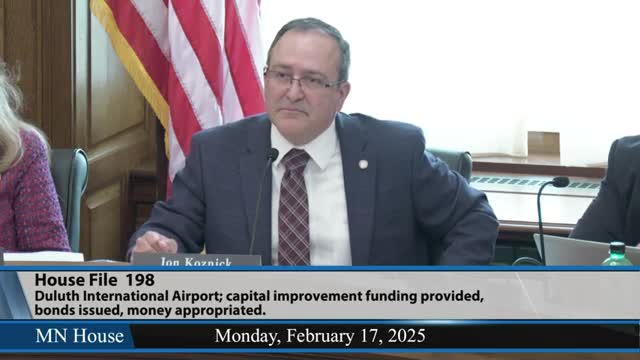Article not found
This article is no longer available. But don't worry—we've gathered other articles that discuss the same topic.
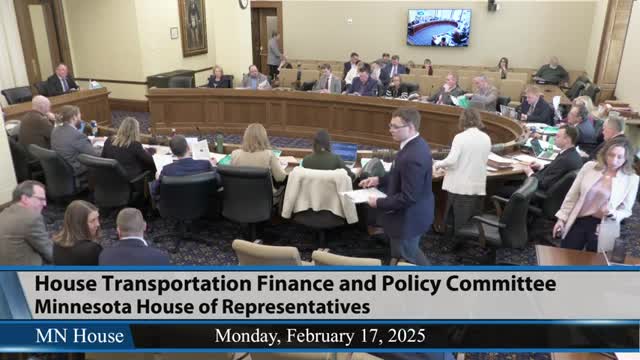
Committee weighs moving blackout-plate revenue to highway fund; DVS warns transfer would create operating shortfall
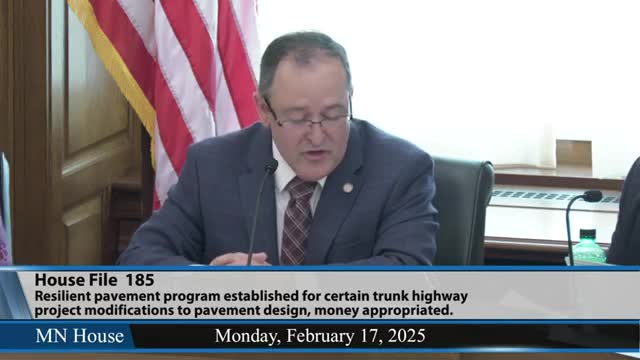
Committee hears proposal to up‑scope pavement projects for longer life; supporters say small upcharges yield big life‑cycle savings
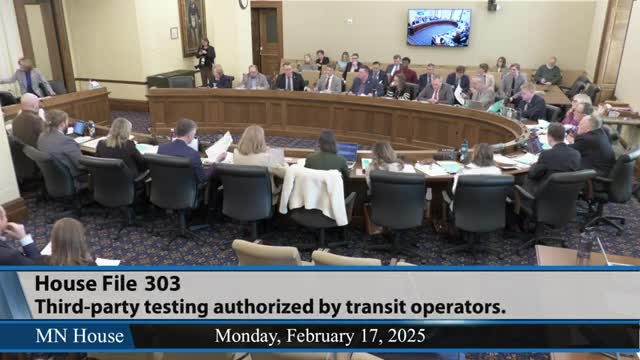
Bill would let transit agencies use third-party CDL testers to speed hiring; supporters say it reduces weeks-long delays
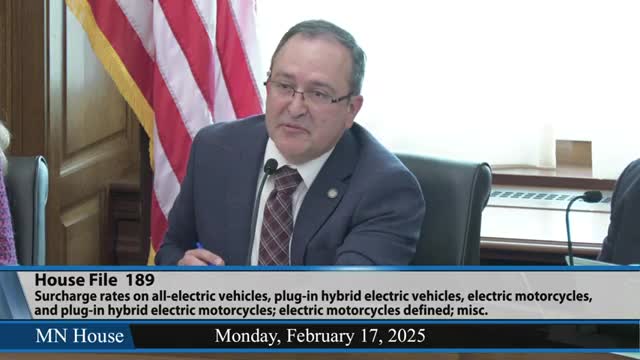
Committee debates higher EV registration fee and a proposed climate offset amendment; amendment fails 8-7
